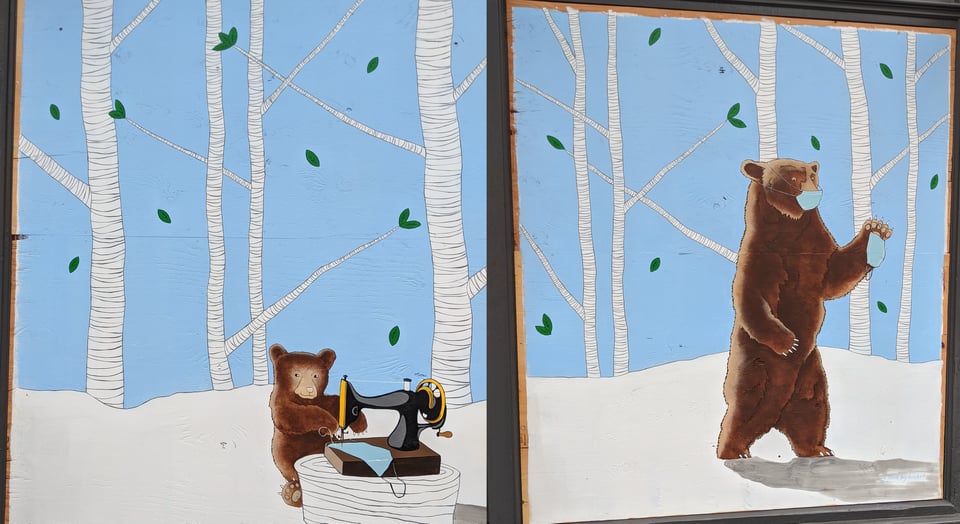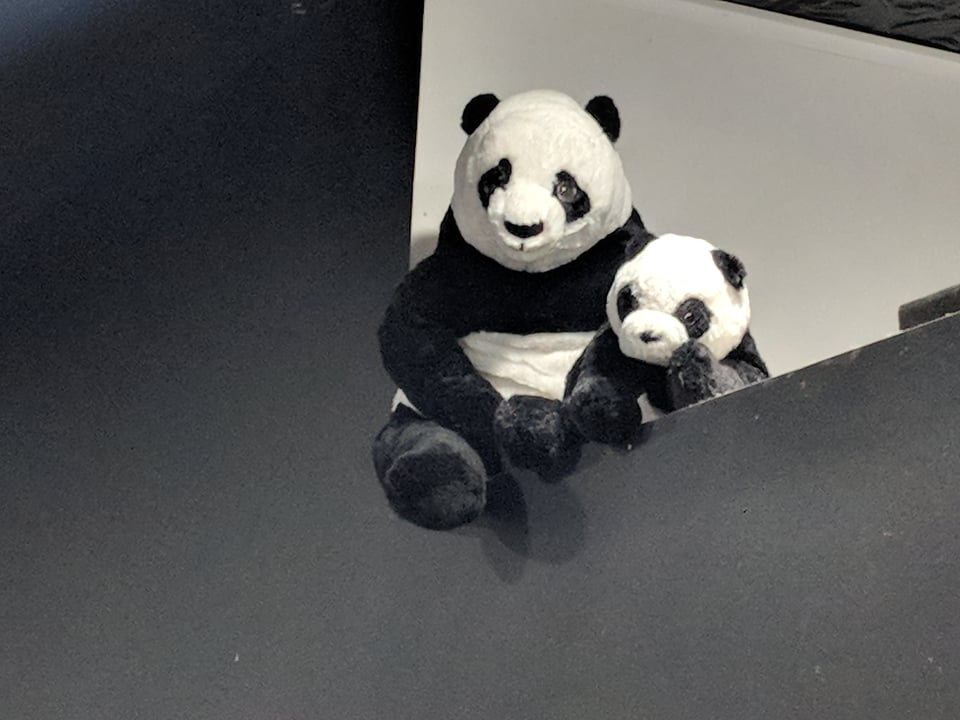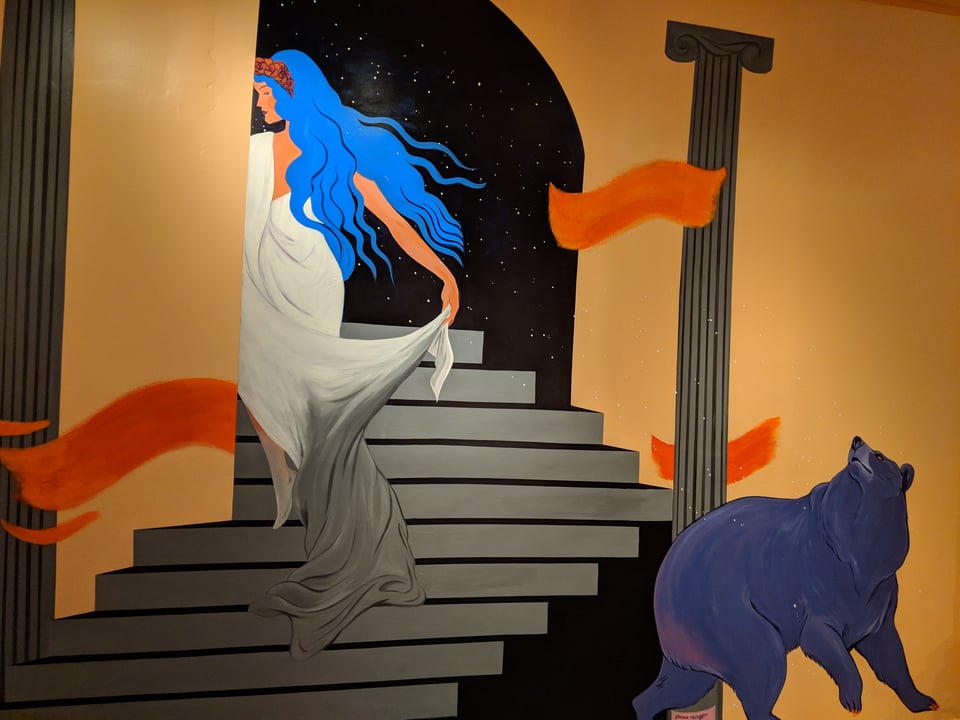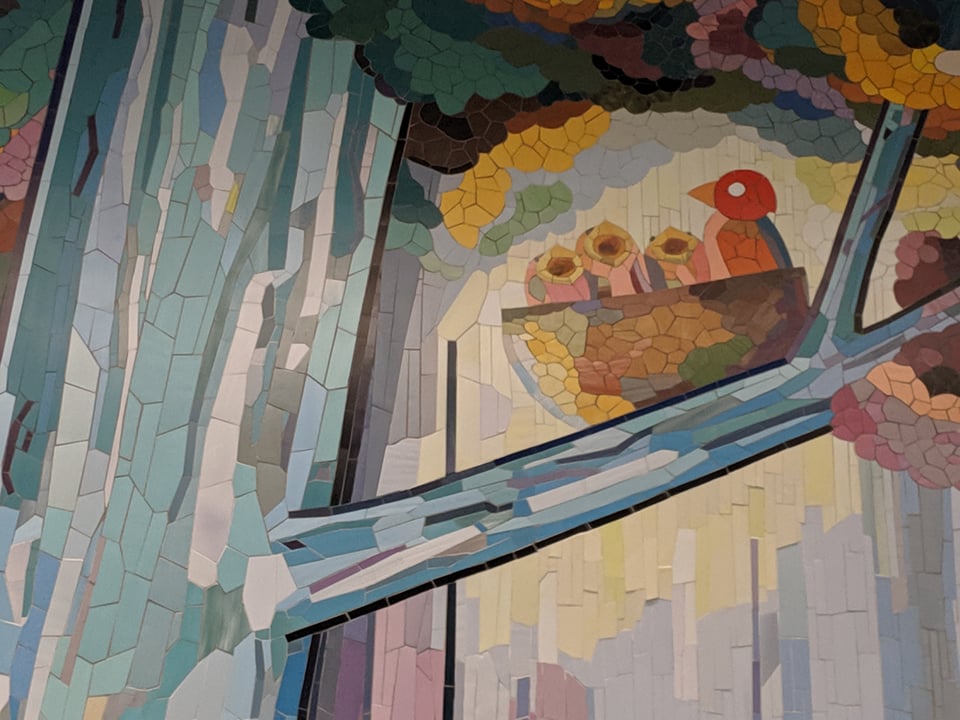Neither Monsters Nor Saints: Mothers can be... people?

When I was in the middle of revising Lessons in Magic and Disaster, one thing worried me endlessly: I was terrified that people were going to dislike, or even hate, Serena.
Serena is the mother of Jamie, the novel's protagonist. Serena's been depressed and isolated for the past several years, ever since her wife died, and Jamie decides to help Serena out of her funk the only way she can think of: by teaching Serena to be a witch. Over the course of the novel, Serena makes a handful of pretty terrible choices because of her grief and anxiety, and things get kind of complicated.
(Hey, just a reminder. It’s not too late to pre-order Lessons in Magic and Disaster! You can still get a signed/personalized copy from Green Apple, and get a reward for submitting your receipt. And come see me on tour!)
So yeah, I was worried that people would think Serena was trash, when I kind of need the reader to care what happens to her. I had endless agonized conversations with my friends about how hard it is to write a mother who is both flawed and lovable — especially if the mother isn't the protagonist, and we're mostly seeing things through the eyes of her daughter. My friends and I always concluded that this is a problem with white American culture, where mothers need to be either saints or monsters, with no in-between.
I have lost count of how many stories I've consumed in which a father behaves selfishly, even cruelly, only to be redeemed in the end. But when it comes to mothers, we demand nothing less than perfection. Woe betide any mom who doesn't always put her children first, sacrificing her own happiness. In "mainstream" American pop culture, I've often felt as though we'll expend endless energy trying to understand flawed fathers, but moms never benefit from this same level of curiosity.
The conundrum of being alive is that each generation seeks its own freedom and fulfillment. We are born into the Web of compromises made by our parents, especially our mothers. Some of those compromises had to do with needing to raise a child, but maybe not all.
Some of our hang-ups undoubtedly have to do with white American culture's obsession with rugged individualism — the notion that you don't become a full-fledged person until you reject your parents, which really means your mother in a lot of cases. We heap scorn on anyone who is too close to their mother, or who still talks to their mother all the time. One of the most common tropes about mothers in our culture is that they constantly complain that their children never call.
While researching this piece, I've come across plenty of mom tropes in popular fiction. There's the eccentric, self-centered mother (like in White Oleander by Janet Fitch), the mother who abandons her family (like in Fangirl by Rainbow Rowell), and the mom who is purely evil and destructive (e.g., Among Others by Jo Walton). To be clear, those are excellent books, and I especially love Fangirl and Among Others a lot.
Still, I have a strong subjective sense that moms are often treated more harshly in stories with young female protagonists, as if young women have a stronger need to reject their own mothers. Or as if part of sympathizing with younger women is seeing their moms as part of the problem.
Meanwhile, pop culture has turned "daddy issues" into a whole industry. See Star Wars, the Marvel Cinematic Universe, etc. Lost was so invested in giving its characters severely flawed dads that one first-season episode even included the word "daddy issues" in its title. My whole life, I've been marinating in messages about trying to make sense of a disappointing pops, and often about giving him a second chance.
I often find it useful to look at the user-generated tags on IMDB, which give a sense of how people are consuming stories. There are tags for both "abusive father" and "abusive mother," which we'll ignore because — to be clear — we're not discussing actual child abuse in this essay, and I would never suggest that abusive parents need, or deserve, understanding or forgiveness.
IMDB has a very robust tag for movies and TV shows containing a "domineering mother" which applies to 951 titles — Stephen King adaptations are very heavily represented, but there's also stuff like Crazy Rich Asians. By contrast, "domineering father" only has 460 titles.
Meanwhile, IMDB has 350 movies and shows tagged "overprotective father", which are almost entirely benign stuff like Finding Nemo, Moana, Hotel Transylvania and 10 Things I Hate About You, compared with just 196 for the similarly gentle "overprotective mother."
In other words, mothers in popular media are more likely to be "domineering," while fathers are more likely to be "overprotective."
One more data point from IMDB, because I'm having fun: the "dysfunctional family" tag is much more likely to be related to the "mother-daughter relationship" or "mother-son relationship" tags than to the "father-son relationship" or "father-daughter relationship" tags. Okay, I'm done, I swear.

If you're a father, you can do the bare minimum for your child and be forgiven for unspeakable atrocities. The obvious example is Darth Vader, child murderer and genocidal terrorist, who earns redemption through the mere act of not murdering his own son. But also? Klaus Mikaelson in the Vampire Diaries universe sheds oceans of blood and is endlessly cruel —but (spoiler alert) goes to Heaven because he's willing to sacrifice his own life for his daughter, Hope. The. bare. minimum.
Why we scapegoat mothers
The recent anthology Monstrous Mothers: Troubling Tropes, edited by Andrea O'Reilly and Abigail L. Palko examines how popular media regularly depicts mothers as monsters — while scapegoating them for all the world's problems. In the introduction, O'Reilly and Palko argue that:
it is not coincidental that as instability rises globally—from political tensions to economic disparities to environmental concerns—we see the figure of the monstrous mother operating in a wide variety of literary, media, and artistic texts. The tendency to portray mothers as monstrous hides our fear that we really are powerless in the face of global political and economic forces, environmental degradation and climate change, and even the ordinary moments of daily life with children.
Bear in mind they wrote this in 2021, before we rejected yet another female presidential candidate, arguably because she reminded us of our scolding mommies. And before the most recent wave of fear-mongering about kids being both smothered by their helicopter parents and allowed too much freedom to use smartphones. (And those "helicopter parents?" It's more likely to be the moms.) And before the very recent mainstream embrace of tradwife bullshit and paranoia about low birth rates, both of which seem designed to force women into a limited view of motherhood.
Recent exceptions that I've loved
That said, I've definitely seen some portrayals of motherhood that are allowed to be complicated — especially stories about immigrant mothers, who are viewed through a different cultural lens and often are seen as part of a clash of cultures in the lives of their children. Michelle Yeoh has single-handedly revitalized the complex mother in works like the aforementioned Crazy Rich Asians, Everything Everywhere All at Once and The Brothers Sun.

I've also been blown away at times by the fairly sympathetic portrayal of Deborah Vance (Jean Smart) in Hacks, despite her being an objectively terrible mother. This does come at the cost of turning Deborah's daughter D.J. into a bit of a laughing stock at times, with her terrible jewelry and her propensity for selling her mom out to the tabloids. Hacks allows Deborah to be flawed and yet lovable, becuase the story mostly centers her and her daughter seldom gets to be one of the show's viewpoint characters.
Of course, Hollywood has traditionally pushed actresses into obscurity the moment they're too old to play the love interest. Jamie Lee Curtis, who is currently playing a flawed mother in Freakier Friday, recently made headlines by saying she was "prepping to get out" of acting for thirty years, because "I want to leave the party before I am no longer invited." Curtis had seen how her parents were pushed out of the industry, and especially how older women tend to get marginalized. (We've been in an amazing moment of Hollywood letting older women be stars — Pamela Anderson is even having a comeback! — but I fully expect that to go the same way as positive queer representation in the next few years.)
A third exception: I've been gobsmacked by the complex, fucked-up-yet-humanized mothers in some recent novels like The Women Could Fly by Megan Giddings, Rouge by Mona Awad and Wake the Wild Creatures by Nova Ren Suma. Giddings and Suma both depict mothers who — trying to avoid spoilers here — create women-only or separatist communities that ironically impose a huge burden on their daughters, and yet we understand why they felt the need to do so. Rogue pulls off an astonishing feat, showing a mother who appears vain and entirely corrupted by the beauty-industrial complex, but ultimately surprises us.
How I addressed it
Anyway, I sweated for a couple years over how to make people sympathize with Serena in Lessons in Magic and Disaster. And when I showed an early draft to some beta readers, who are some of the most right-on people I know, I did get some feedback suggesting it was hard to care about her because of the choices she makes.
And the fact that I was seeing more messed-up mothers getting nuanced treatments in media, as in the examples I mentioned above, did give me a bit of hope. And inspiration, even. Still, I was worried, because the whole story is about saving Serena, so you have to worry about what happens to her.
In the end, one thing really made a difference to Serena's portrayal: giving her more of a POV in the story. As I wrote recently, it's a political decision as to which characters get to be viewpoint characters, because it's way easier to relate to anyone whose perspective you experience first-hand. And like I said earlier, something like Hacks works because we see way more of Deborah Vance's perspective than that of D.J. (You could imagine a version of Hacks told entirely from D.J.'s perspective, and Deborah would not come off well at all.)
So I went back and wrote about 25,000 words of brand new material from Serena's point of view, mostly flashbacks from the 1990s to the 2010s. I showed how Serena fell in love with her wife, Mae, and how they finally chose to have a kid — and how they found out that their kid was trans. Writing this stuff not only helped readers to understand Serena better, but also helped me get deeper into her head and figure out what makes her tick. Everything else in the novel felt richer once I added those sections in.

(Side note: I showed those 25,000 words to people, and one or two people said it was unrealistic that both Serena and Mae are supportive of Jamie's transition when their then-teenage daughter comes out to them. They suggested having Serena be unsupportive at first. I saw their point, but really did not want another instance of Serena being a jerk. And this did not feel like the character I had been writing this whole time: someone who is fiercely queer and protective of gender-nonconforming people, a person who desperately wants to do right by her family.)
Anyway, I had a lot of fun researching recent history for the Serena sections — and it taught me more about queer generational trauma, as I wrote about recently. I just found a document I wrote that's titled "rando poety-lifey text to insert into serena chapters," and it's just me noodling on poetic or resonant phrases to include. Some of it made it into the book, some didn't. Here's a bit I like that didn't make the final cut:
All that time Serena had spent worrying that she was unfit to be a wife and mother — too arrogant, a rampaging asshat — and she'd been right, of course. The Serena of a decade earlier could not have handled any of this.
I'm hoping we continue to see more stories that unravel the complexity of motherhood. And which allow mothers to have inner lives — and even selfish choices — without turning them into villains. I especially crave complicated relationships between mothers and daughters.
Mothers trying to project their own insecurities and desires on their children, or to reshape their children in their own image, are endlessly fascinating. Mothers who want their daughters to do better than they did — or who resent their daughters for going further than they were able to. Mothers who try to protect their children, only to hold them back. Religious mothers who wrap their children in a straight jacket of dogma. All of it. Let mothers fuck up, without writing them off.
I live for stories in which people learn to see each other more clearly — and that goes double for people learning to understand their mothers.
Sorry this was such a long essay! I cut a ton out of it but there was a lot of ground to cover. In any case… Lessons in Magic and Disaster comes out on Aug 19, in just over a week. Get a signed copy from Green Apple! We’ll have early copies on sale at Writers With Drinks in Seattle on Thursday, and then I’ll be doing events in SF, Portland, Chicago, L.A., San Diego, Seattle and Atlanta. Details and RSVP here.